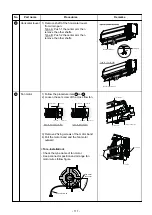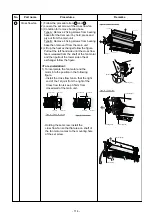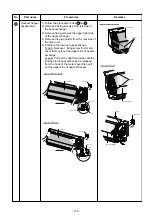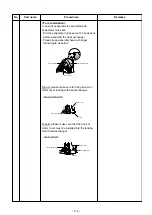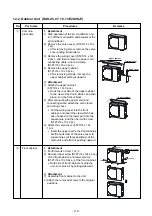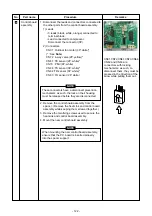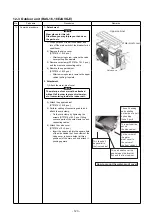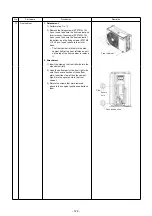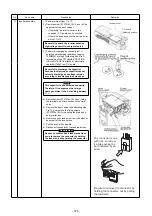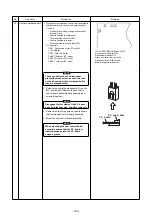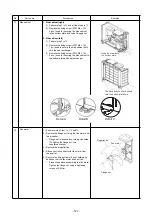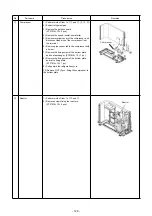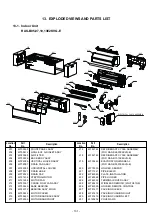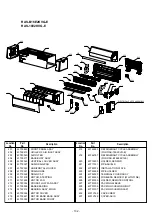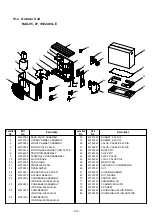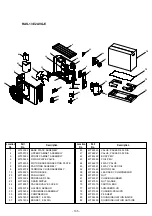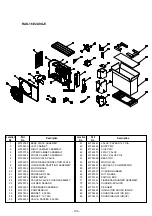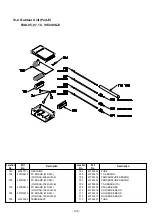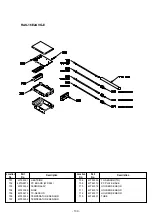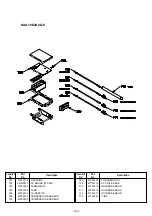
No.
Part name
Procedures
Remarks
3
Inverter assembly
1)
Perform work of item 1 in
1
.
2)
Remove screw (ST
2
TØ4 × 10L 2 pcs.) of the
upper part of the front cabinet.
• If removing the inverter cover in this
condition, P.C. board can be checked.
• If there is no space above the unit, perform
work of 1 in
2
.
Be careful to check the inverter because
high-voltage circuit is incorporated in it.
3) Perform discharging by connecting
e
,
d
polarity by discharging resistance (approx.
100
Ω
40W) or plug of soldering iron
e
to
d
,
terminals a of the C
07
(printed “CAUTION
HIGH VOLTAGE” is attached.) electrolytic
capacitor (
760
µF) on P.C. board.
Be careful to discharge the capacitor
because the electrolytic capacitor cannot
naturally discharge and voltage remains
according to trouble type in some cases.
4)
Remove screw (ST
2
TØ4 x 10L 4pcs.) fixin
g
the terminal part of inverter box to the main
body.
5)
Remove the front cabinet by performing step
1
in
2
, and remove the fixing screws
(S
T
2
TØ4
x 10L) for securing the main body
and inverter
box.
6)
Remove various lead wires from the holder at
upper part of the inverter box.
7)
Pull the inverter box upward.
8)
Disconnect connectors of various lead wires.
The connector is one
with lock, so remove
it while pushing the
part indicated by an
arrow.
Be sure to remove the connector by
holding the connector, not by pulling
the lead wire.
Inverter cover
P.C. board
(Soldered surface)
NOTE
This capacitor is one with mass capacity.
Therefore, it is dangerous that a large
spark generates if short-circuiting between
e
,
d
Requirement
As each connector has a lock mechanism,
avoid to remove the connector by holding
the lead wire, but by holding the connector.
- 125 -

